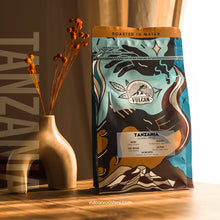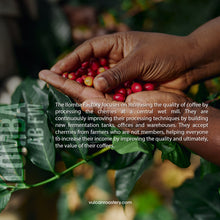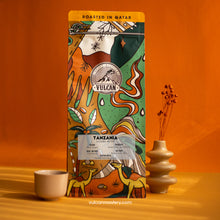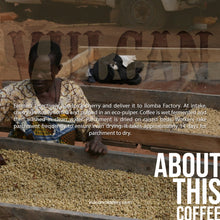
TANZANIA - ILOMBA
This washed coffee demonstrates the incredible potential of Tanzanian coffee farmers to produce high quality specialty coffees.
FARM: Ilomba Mbozi
VARIETAL: Bourbon, Kent, Typica
PROCESSING: Washed
ALTITUDE: 1,700 meters above sea level
PRODUCER: Best AMCOS
REGION: Songwe, Tanzania
TASTING NOTES: Molasses, Red Cherry, Syrupy
The Ilomba Factory focuses on increasing the quality of coffee by processing the cherries at a central wet mill. They are continuously improving their processing techniques by building new fermentation tanks, offices and warehouses.
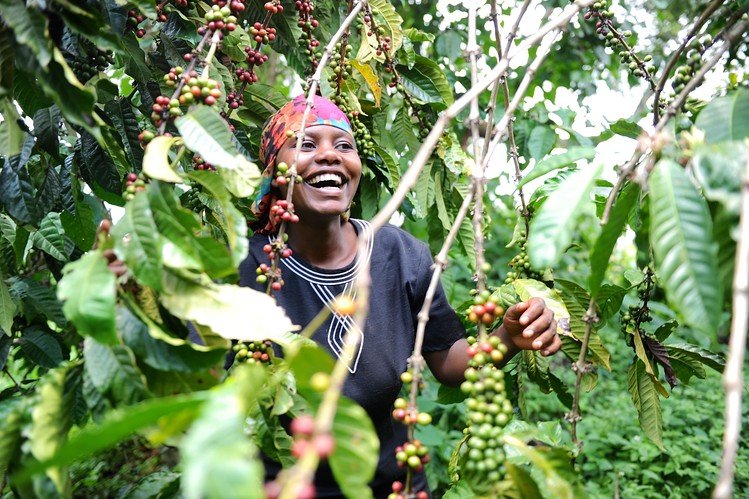
They accept cherrries from farmers who are not members, helping everyone to increase their income by improving the quality – and ultimately, the value – of their coffees.
HARVEST & CULTIVATION
Farmers selectively handpick cherry and deliver it to Ilomba Factory. At intake, cherry is visually sorted and pulped in an eco-pulper. Coffee is wet fermented and then washed in clean water. Parchment is dried on raised beds. Workers rake parchment frequently to ensure even drying. It takes approximately 14 days for parchment to dry.
In addition to growing coffee, farmers typically intercrop with corn, beans, groundnuts, sunflowers and ginger. They also grow a flower called the Pyrethrum Daisy, which many farmers use as a natural insecticide.

COFFEE IN TANZANIA
Coffee’s roots in Tanzania can be traced via oral history back to the Haya tribe of Northwest Tanzania in the 16th century. Following German and then British colonial rule, the Tanzanian coffee industry has undergone many transformations and adjustments in an effort to create the most equal, profitable and high-quality coffee possible. Today, our in-country partner, Sucafina Tanzania, is invested in improving the coffee and the lives of smallholder farmers through a variety of initiatives.
Coffee in Tanzania was grown almost exclusively in the North for a long time. The Kilimanjaro, Arusha, Tarime, Kagera, Kigoma and Karatu/Ngorongoro regions were prized for their ideal Arabica growing conditions. At the time, coffee production was so concentrated in the north that Moshi, a northern municipality, was the only hub for all coffee milling and sales.
Operations in Moshi grew to truly massive proportions in the 1950s and early-1960s. Since both Tanzania, Kenya and Burundi were under British rule in the post-war decades, Moshi was the second milling and sales hub (after Nairobi, Kenya) for British coffee production.
Coffee cultivation has extended southwards in recent years. In addition to the historical powerhouse regions in the north, coffee is now also grown in the southern regions of Ruvuma and Mbeya/Mbozi. Most Southern expansion of coffee growing occurred in the 1970s and 1980s and was encouraged by two projects supported by European backers. In an ironic twist, today 75 to 85% of total coffee production in Tanzania today comes from farms in the south.






